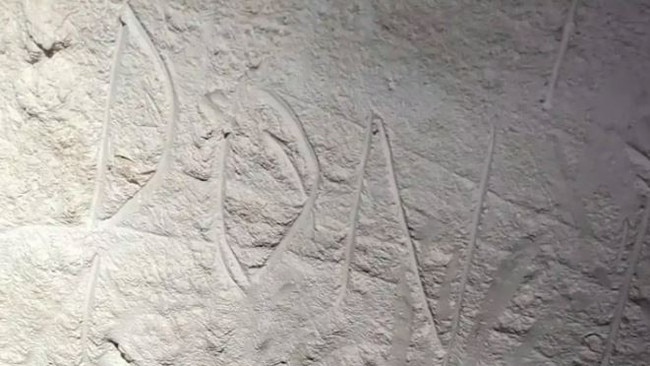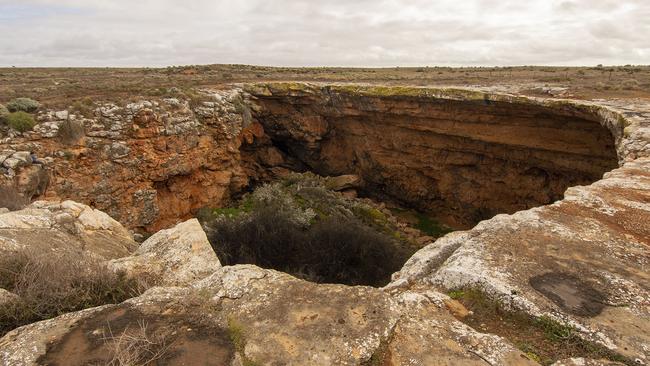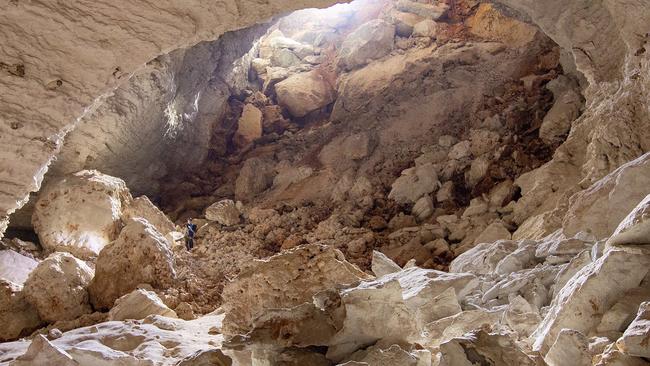Sacred 22,000 years old Indigenous art destroyed by vandals
A heritage-listed cave with 22,000 years of history has been vandalised by thugs who graffitied over the artwork.
Art dating back 22,000 years, which is sacred to First Nations people, has been destroyed by vandals.
The Koonalda Caves holds great spiritual importance to the Mirning people of the Nullabor Plain but it was also critical to archaeological understanding of all indigenous Australians.
Vandals are alleged to have dug under a steel gate earlier this year and completely destroyed a section of delicate finger-marked cave art at the heritage-listed site.
The group graffitied the words “don’t look now, but this is a death cave”.
Koonalda Cave Nullarbor National Park nature is spectacular ðŸ‘🇦🇺🺠pic.twitter.com/6lfehbhyIL
— RobertSpudBalloch#33 (@RobertBalloch) November 26, 2019
A South Australian government spokesman said the vandalism was “shocking and heartbreaking”.
“If these vandals can be apprehended they should face the full force of the law,” they said.
In the wake of the vandalism, the SA government said they had consulted Traditional Owners in recent months to develop a plan to “better protect this important site”.
“The existing fencing and general difficulty in accessing the caves deters the vast majority of visitors from trespassing,” the spokesman said.
The destruction has made international headlines and sparked outrage on Twitter.
“What the f**k is wrong with people?” one person wrote.

Live CCTV surveillance is being considered.
Under Australian law, the Mirning people have not been recognised as traditional custodians of the land and still need to request permission from the SA government to access the site.
Koonalda Caves up-ended scientific acceptance of the history of First Nations people as it was the first site that could date indigenous rock art to earlier than 8,000BC.


The art was able to prove that indigenous Australians had existed at least 22,000 years ago.
It is not the first time indigenous art has been destroyed in recent years.
In 2020, mining company Rio Tinto detonated the 46,000-year-old Juukan Gorge Rock shelters to make way for an expansion of an iron ore mine.
The incident sparked outrage amongst Australians and lead to a parliamentary inquiry into the issue.
A month ago, the Puutu Kunti Kurrama and Pinikura Aboriginal Corporation and Rio Tinto signed a remedy agreement for financial support in the creation of the Juukan Gorge Legacy Foundation.


